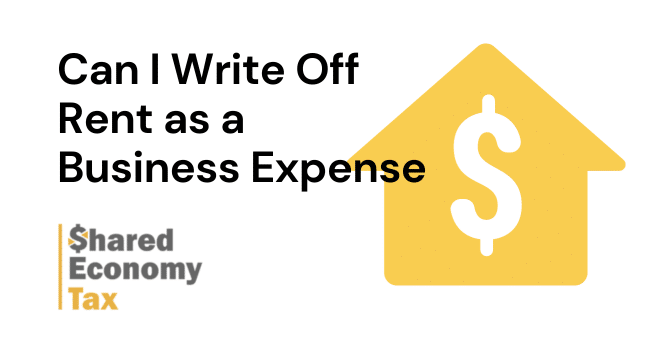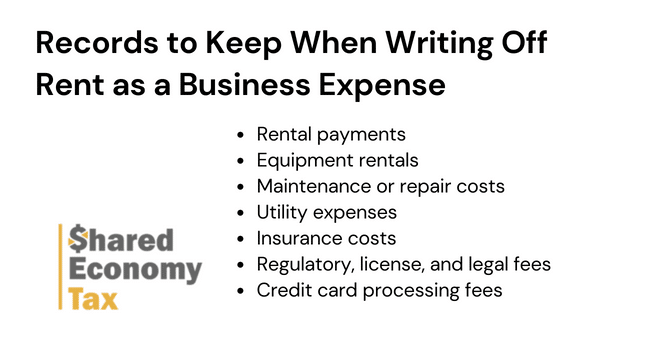
Whether you have a home office or are renting a commercial building, you may be wondering if it’s feasible to write off rent as a business expense. For business owners and freelancers, rent can be used as a tax deduction. However, there are strict guidelines you must follow to claim this tax break.
Can You Write Off Rent on Taxes?
If you’re wondering “Can I write off rent as a business expense?”, it’s possible to do so if you take the right approach. In many cases, rent is a business-related expense. If you fully own a property, it’s a depreciable asset, which gives you the ability to claim an annual amount of depreciation on your taxes as a deduction. The value of a residential property is spread out over 27.5 years, which means that owners can place the same deduction on their return for the next 27 years.
However, property owners must also contend with depreciation recapture, which is an IRS policy that states an individual is unable to claim depreciation and sell their property for a profit without paying taxes on the extra income they receive. This money is taxed as ordinary income, which comes with a higher tax rate than capital gains.
When you’re selling an asset, such as real estate or business equipment, you must always take capital depreciation into account. On the other hand, you can write off rent as a business expense without needing to pay anything back to the IRS. To write off your rent, you must use the property solely for business-related purposes.
What Qualifies as Business Rent?
There are a few scenarios where you can claim the rent you pay as business rent. If you have a home office, rent traditional office space, or rent a co-working space, you should be able to deduct nearly 100% of your rent on your next tax return.
Numerous criteria are used to determine whether the rent is personal or business. The rent is business-related if:
- It’s your main place of business
- You use it regularly for business
- It’s exclusively for business
Personal rent is any money that’s you pay to live in an apartment unit or single-family home. In comparison, business rent can involve everything from a home office to commercial office space. Unlike personal expenses, business-related expenses can be written off on taxes, which is why it’s a good idea to establish your rent as a business expense if you qualify.
Calculating Your Rent Deduction
Before you write off rent as a business expense, you should first perform some simple calculations. Taxpayers are able to calculate their rent deductions ahead of time as long as the expense qualifies. Keep in mind that the formula for calculating a deduction varies based on the way you use your property. You can either deduct the area that you use for business by the property’s total area or divide the number of rooms you use for business-related purposes by the total number of rooms.
Home Office
There are several criteria that you must take into account before claiming a home office deduction. To qualify for this deduction, it’s essential that the space is used regularly and exclusively for business. It can’t be a bedroom that serves as a makeshift office a few days each week. It’s also essential that the office is your primary place of business.
According to the IRS, you can deduct home office expenses on your tax return. However, you’ll need to keep comprehensive records to avoid issues when it comes time to file your taxes.
There’s a difference between whole-home expenses and business-specific expenses. You can only write off expenses for items that are solely for use in your home office. There are also different methods that you can use to calculate your rent deduction, which you can learn more about in our home office deduction guide.
Renting Commercial Space
If you’re renting out commercial space for your business, the IRS allows you to write off your rent. In fact, this process is much more straightforward when compared to writing off rent for a home office. When you lease a commercial space that’s entirely to your business, you can deduct 100% of the rent.
Make sure that the commercial space you’re renting qualifies for a tax deduction before you claim it on your tax return. The main buildings that qualify for tax deductions include storefronts, warehouses, and offices. The expenses you can deduct include rent, repairs, costs for securing the lease, and utilities.
There are some potential pitfalls you need to avoid when taking advantage of this tax break. For example, the rent needs to be reasonable, which means that it must be close to the market rate for a property in your area. You can’t deduct rent if you’ve entered into a rent-to-own agreement.
Shared Offices and Co-working
Over the past decade, co-working spaces have become increasingly popular as a means of reducing business expenses and keeping rent affordable. Instead of renting out a large commercial space, you can rent out only the amount of office space you require.
Even though you’re using a shared office environment, it’s still possible to write off rent as a business expense. Any money you spend on the space you can deduct.
Does Entity Structure Matter?
The structure of your business might play a role in your ability to write off rent as a business expense. Since expenses are spread out among two or more individuals, only the proportion of expenses that someone is responsible for can be deducted. If your business is a sole proprietorship, you can deduct everything yourself. Four-member partnerships or LLCs operate differently. Each owner can deduct 25% of the rental payments.
Common Mistakes to Avoid
Even though the guidelines for writing off rent aren’t too difficult to understand, there are a few errors that businesses routinely make when attempting to deduct rent. To ensure you maximize your deductions and comply with all IRS guidelines, don’t try to front-load your deduction.
If you pay for an entire five-year business lease up front, you’ll need to spread the deduction out over each of the five years instead of a single tax year.

How to Stay Compliant
The best way to remain compliant with IRS guidelines and regulations about writing off rent is to save as much supporting documentation as possible. If the IRS audits you, it’s essential that you can provide documentation that supports why you made the decision to write off rent. There are many different types of records you should keep, which include the following:
- Rental payments
- Equipment rentals
- Maintenance or repair costs
- Utility expenses
- Insurance costs
- Regulatory, license, and legal fees
- Credit card processing fees
Keep these documents for at least seven years, so you can defend yourself against a potential audit.
Determining the eligibility of rent deductions is a tricky business. The waters can get muddied very quickly.
A qualified tax advisor will minimize the chances of a costly mistake. Plus, they can help you pinpoint additional qualified deductions you may have overlooked, so you can save even more money.
Closing Thoughts on Can I Write off Rent as a Business Expense
Deducting rent as a business expense significantly reduces your tax bill. It’s one of the most powerful deductions available to small businesses with home offices.
However, you should exercise care when claiming rent as a deduction. Make sure your deductions comply with federal & state tax regulations, or the auditors could come knocking.
Shared Economy Tax specializes in tax & accounting services for Airbnb hosts and the short-term rental community. Our tax pros utilize cutting-edge tax strategies to help you keep more of what you earn. Connect with a tax pro now for a one-on-one strategy session and see how much you can save.